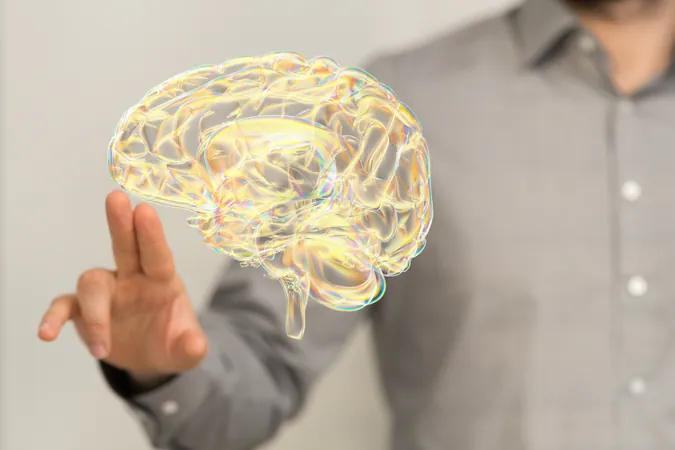
Shocking Link Revealed: Violence in Schizophrenia Tied to Brain Changes and Hormonal Imbalances!
2024-11-29
Author: Daniel
Recent Research Findings
Recent research has uncovered a startling connection between violent behavior in schizophrenia and significant alterations in brain structure as well as hormonal levels. A new study indicates that patients exhibiting violent behaviors in the context of schizophrenia possess lower gray matter volume in the left frontal pole and elevated levels of thyroid-stimulating hormone (TSH) compared to those who do not show violent behaviors.
The Role of the Frontal Lobe
The frontal lobe is known to be critical for cognitive functions such as decision-making, problem-solving, and emotional regulation. Changes in gray matter in this area have been associated with increased aggression in schizophrenia. However, prior to this study, little was understood about how thyroid dysfunction might interplay with these brain changes. The research team, led by Tao Yu at the Anhui Mental Health Center in Hefei, China, set out to bridge this knowledge gap by investigating TSH levels alongside frontal lobe gray matter in male patients with violent schizophrenia.
Study Design
The study involved 29 male patients exhibiting aggressive behaviors and 26 non-violent male schizophrenia patients, all recruited from a general psychiatry ward between December 2021 and March 2022. Criteria for participation included being right-handed, non-smokers, non-drinkers, and free from significant neurological conditions. Those with a history of substance abuse or severe head trauma were excluded to ensure clear results.
Medication and Assessment
Participants were undergoing treatment with various antipsychotic medications, including risperidone, paliperidone, and clozapine, which were all adjusted to their equivalent doses of chlorpromazine for consistency in the study. Aggression levels were assessed using a Modified Overt Aggression Scale shortly after their admission, while blood samples were taken to analyze hormones vital for brain function—T3, T4, and fT3, among others.
Key Findings
Crucial findings revealed that patients displaying violence had a distinct increase in TSH levels compared to their non-violent counterparts, suggesting that hormonal imbalances might contribute to the underlying mechanisms of violence. Moreover, significant correlations were found indicating that higher TSH levels could be detrimental to brain health, leading to reduced levels of vital hormones like T3 and T4, which are essential for neurotransmitter activity and brain function. Interestingly, while TSH levels varied dramatically, there were no significant differences in T3, T4, and their free forms between the groups, indicating a complex relationship at play.
Gray Matter Volume Findings
Even more striking was the discovery of reduced gray matter volume in the left frontal pole among patients exhibiting violent behaviors—this was consistent even when accounting for age and overall brain volume. The researchers highlighted that these findings underscore the role of reduced frontal gray matter in the tendency for violence among schizophrenia patients and prompt the need to pay closer attention to thyroid hormone levels in treatment regimens.
Implications for Treatment
“The implications of these findings are profound, suggesting that managing thyroid levels could potentially reduce aggression in schizophrenia patients,” the investigators concluded.
Future Research Directions
This pivotal study not only sheds light on the intricate links between brain structure, hormonal levels, and violent behavior but also opens new avenues for therapeutic interventions that could significantly alter the landscape of treatment for schizophrenia. As researchers continue to explore these connections, it becomes increasingly clear that addressing both neurological and endocrine factors could yield more effective strategies for managing this complicated disorder.
Conclusion
Stay tuned as we unravel more groundbreaking findings in the field of mental health!


 Brasil (PT)
Brasil (PT)
 Canada (EN)
Canada (EN)
 Chile (ES)
Chile (ES)
 España (ES)
España (ES)
 France (FR)
France (FR)
 Hong Kong (EN)
Hong Kong (EN)
 Italia (IT)
Italia (IT)
 日本 (JA)
日本 (JA)
 Magyarország (HU)
Magyarország (HU)
 Norge (NO)
Norge (NO)
 Polska (PL)
Polska (PL)
 Schweiz (DE)
Schweiz (DE)
 Singapore (EN)
Singapore (EN)
 Sverige (SV)
Sverige (SV)
 Suomi (FI)
Suomi (FI)
 Türkiye (TR)
Türkiye (TR)